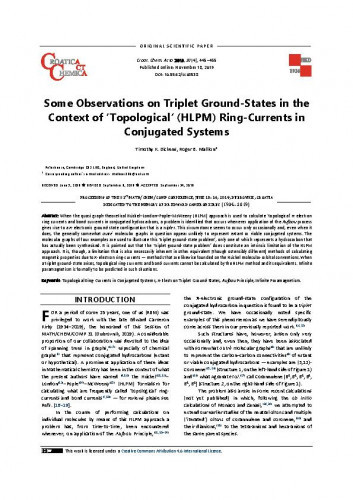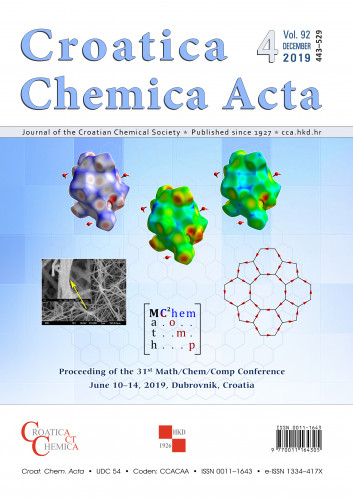When the quasi graph-theoretical Hückel–London–Pople–McWeeny (HLPM) approach is used to calculate ‘topological’ π-electron ring-currents and bond-currents in conjugated hydrocarbons, a problem is identified that occurs whenever application of the Aufbau process gives rise to a π-electronic ground-state configuration that is a triplet. This circumstance seems to occur only occasionally and, even when it does, the generally somewhat outré molecular graphs in question appear unlikely to represent extant or viable conjugated systems. The molecular graphs of four examples are used to illustrate this ‘triplet ground-state problem’, only one of which represents a hydrocarbon that has actually been synthesised. It is pointed out that the ‘triplet ground-state problem’ does constitute an intrinsic limitation of the HLPM approach. It is, though, a limitation that is also necessarily inherent in other equivalent (though ostensibly different) methods of calculating magnetic properties due to π-electron ring-currents — methods that are likewise founded on the Hückel molecular-orbital conventions. When a triplet ground-state arises, topological ring-currents and bond-currents cannot be calculated by the HLPM method and its equivalents. Infinite paramagnetism is formally to be predicted in such situations.
Sažetak

 Croatica chemica acta : 92,4(2019) / editor-in-chief Olga Kronja.
Croatica chemica acta : 92,4(2019) / editor-in-chief Olga Kronja.